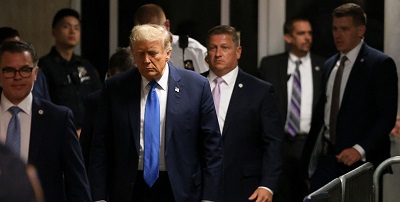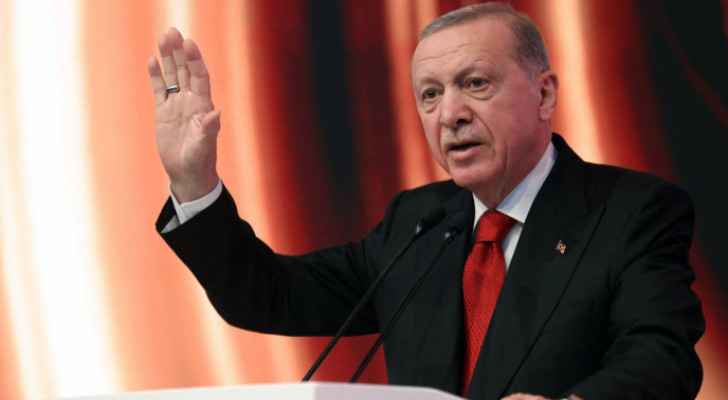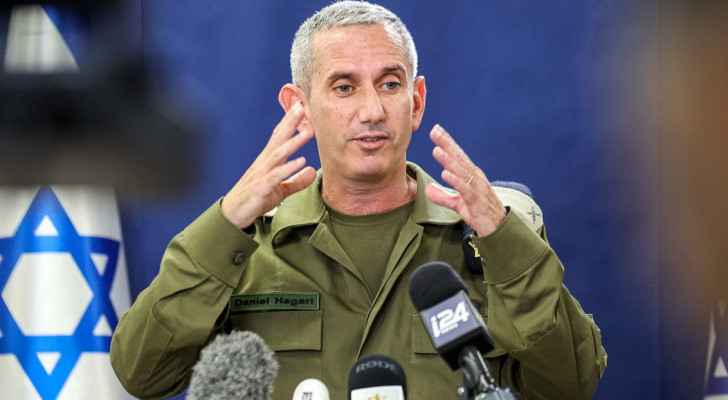Abbas’ deplorable legacy: Beginning of the end? - By Ramzy Baroud, Al Arabiya
“May God demolish his home,” was one of the statements attributed to Palestinian Authority President, Mahmoud Abbas in response to US President Donald Trump’s decision to defy international law and accept Israel’s designation of Occupied Jerusalem as Israel’s ‘eternal and undivided capital’.
That was on January 14. A few days ago, Abbas referred to David Friedman, the ardent rightwing and pro-Israel US Ambassador to Israel as a “son of a bitch.”
Abbas feels beleaguered, disowned by Washington and a victim of an elaborate US-Israeli plot that has cost Palestinians precious time, land and lives, while leaving him with nothing but an embarrassing political legacy.
Abbas is not angry because the US has betrayed its role in the so-called “peace process”, but rather because he always perceived himself as a member in the American camp of “moderates” in the Middle East. Now, however, he matters little.
Abbas and his authority were paid billions of dollars which were never accounted for because of entrenched corruption among the Ramallah ruling elites.
The US, now run by the most pro-Israel administration in years, has no role for Abbas. They have disowned him and proceeded to imagine a ‘solution’ in Palestine that is purely in the interests of Israel.
A recent meeting chaired by leading pro-Israel officials in Washington, including Jared Kushner, was dubbed a “brainstorming session” on how to solve the Gaza crisis – without the involvement of a single Palestinian.
Trump and Israeli Prime Minister Benjamin Netanyahu’s attitude toward Palestinians is reminiscent of the past. Not until the late 1980s did the US even acknowledge that the Palestinian Liberation Organization (PLO) was a representative of the Palestinian people.
Since Abbas rested all hopes on Washington, he is left with no plan B. Even the Europeans – who are supposedly unlike the hawkish US administration – have neither the will, desire nor political clout to replace the US.
They have often served as lackeys to US foreign policy, and it would not be easy, if at all possible for any European government to replace the US as the new “honest peace broker.”
Lack of popularity
Abbas’ popularity and authority among Palestinians are negligible. In fact, most Palestinians in the West Bank want him to step down. However, at 83 and despite suffering from ill health, Abbas is holding onto what little power he has.
It may appear that during this time of political uncertainty and isolation, it would be advantageous for Abbas to reach out to his political rivals in Hamas and other groups. However, the opposite is true, as he has accused Hamas of an assassination attempt on PA Prime Minister, Rami Hamdallah.
On March 13, while on his way to the besieged Gaza Strip, two 33-pounds bombs targeted Hamdallah’s convoy, of which one exploded.
Hamdallah was visiting Gaza through the Israeli border checkpoint, Erez, to open a large sewage treatment plant that, if allowed to operate regularly, will ease life for hundreds of thousands of Gazans, who have endured a debilitating and brutal Israeli siege since 2006.
Hamdallah’s visit was also seen as another important step in the reconciliation efforts between the two main Palestinian factions: Fatah, led by Abbas, in the Occupied West Bank and Hamas, led by former Prime Minister, Ismael Haniyeh in Gaza.
Although reconciliation efforts have for years, been half-hearted at best, the latest round of talks between both groups, held in Cairo in October last year, resulted in a breakthrough. This time, Palestinians were told that the two factions are keen on establishing unity, ending the siege on Gaza and revamping the largely dormant PLO institutions.
Hamas and the Islamic Jihad were to join the PLO at some point in the future, leading to the formulation of a unified Palestinian political program. And, perhaps, this keenness at ending the rift has led to the attempt on Hamdallah’s life.
Last October, Hamdallah led a delegation of Fatah PA officials to Gaza to “end the painful impacts of divisions and to rebuild Gaza brick by brick.”
Rekindled hope
Since Israel destroyed much of Gaza’s infrastructure and thousands of homes in the summer of 2014, Gaza – already reeling under a hermetic siege and the impact of previous wars – has been in ruins. Hamdallah’s visit rekindled hope among Gazans and all Palestinians, that respite is on the horizon.
Hamas’ insistent attempts to break from its isolation seemed to be finally bearing fruit. Abbas’ party also moved forward with the unity arrangements, although for its own reasons. Fatah has been dysfunctional for years, and the imminent exit of Abbas has inflamed intense rivalry among those keen to succeed the aging leader.
Supporters of Mohammed Dahlan who was ejected by Abbas years ago and is currently based abroad, would like to see him back in a position of power. The US and Israel are following these developments closely. They, too, have favorites and are vested in the future of Fatah to sustain the status quo.
Those who want Hamdallah dead are likely not targeting the Prime Minister for his own ideas or policies but for what he represents – a PA leader capable of achieving a long-term understanding with Hamas. Killing Hamdallah also means ending or at least, obstructing, the unity efforts, discrediting Hamas, and denying Abbas and his leadership the necessary political capital to secure his legacy.
Of course, there are those in Fatah, including in Abbas’ own office, who accused Hamas of trying to kill Hamdallah. Hamas did more than deny the accusations but, within one day of the apparent assassination attempt, announced that it had apprehended suspects behind the explosion. The main suspect, Anas Abu Khoussa was killed in clashes in a Gaza refugee camp.
Amira Hass noted, Hamas “could not have any interest in attacking senior Palestinian Authority officials on their way to inaugurate a sewage treatment plant that residents of the Gaza Strip have long awaited.”
Existing disagreements
One should, however, not undermine the seriousness of the still existing disagreements between Hamas and Fatah that have thus far derailed the implementation of the unity agreement.
The main point of conflict is over Hamas’ fighting force. Hamas refuses to compromise on the issue of armed resistance, and Abbas insists on the dismantling of Hamas’ armed group, Izz al-Din al-Qassam Brigades.
Although Hamdallah survived, the bombing achieved some of its objectives. A senior PA official told AFP that “Abbas decided no members of Hamdallah’s government would travel to Gaza in the short term ‘due to the security problems.’” While this might not be the end of reconciliation, it could possibly be the beginning of the end.
Shunned by the US, relegated by triumphant Netanyahu, and incapable of forging lasting unity with Hamas or mobilizing Palestinians, Abbas’ legacy is reaching a humiliating end.
Considering that it was Abbas that empowered the US and Israel – through engaging in their political gambit and “security coordination” – he has no one to blame but himself. Nothing he could possibly say or do at this stage will alter his legacy or win him respect among disenchanted and angry Palestinians.
Latest News
 Prosecution lays out ‘criminal conspiracy’ in historic Trump trial
Prosecution lays out ‘criminal conspiracy’ in historic Trump trial King from Madaba: Jordan has always proven its ability to move forward with persistence of Jordanians
King from Madaba: Jordan has always proven its ability to move forward with persistence of Jordanians Safadi discusses war on Gaza with French, German delegations
Safadi discusses war on Gaza with French, German delegations Erdogan arrives in Baghdad for first official visit since 2011
Erdogan arrives in Baghdad for first official visit since 2011 “Israeli” army says it approved plans for “continuation of war in Gaza”
“Israeli” army says it approved plans for “continuation of war in Gaza”
Most Read Articles
- Safadi discusses support to Syrian refugee with DRC
- King, Kuwait emir reaffirm pride in deep-rooted relations
- Israeli Occupation aggression on Gaza enters 200th day
- Jordan condemns Israeli 'war crimes' in Gaza, calls for accountability
- UNRWA’s role in Gaza indispensable — Foreign Ministry
- General Motors lifts 2024 profit forecast after strong Q1
- Azerbaijan says ‘closer than ever’ to Armenia peace deal amid border talks
- Sustainable economy and zero-growth - By Ayoub Abu Dayyeh, The Jordan Times
- Baby delivered from dying mother's womb in Gaza 'miracle'
- 16 dead, 28 missing in migrant boat capsize off Djibouti — UN